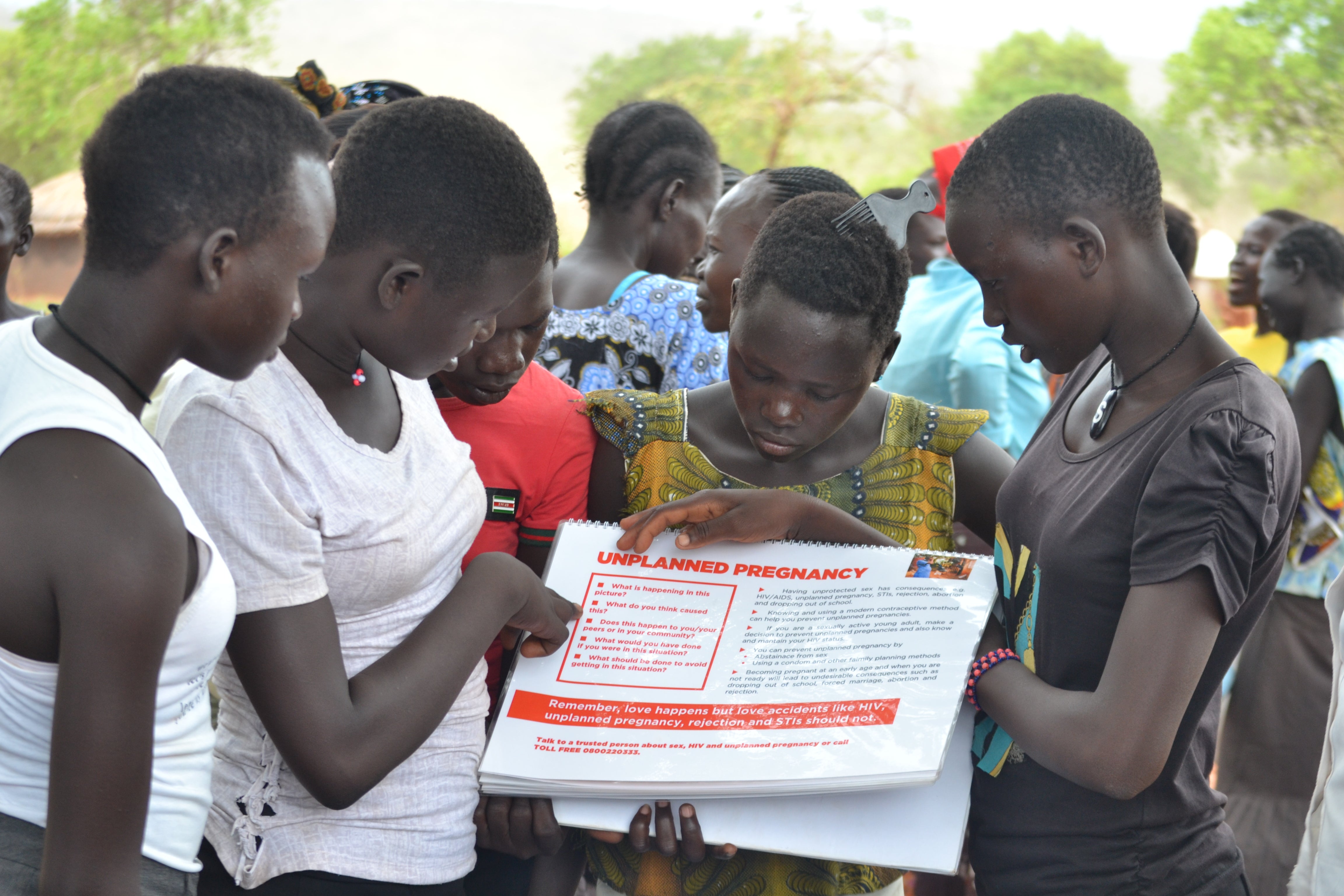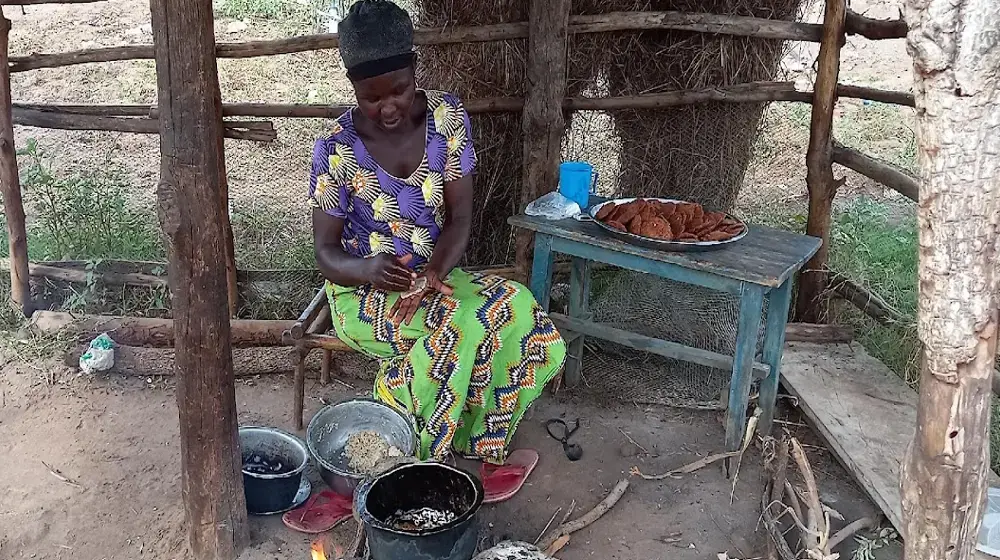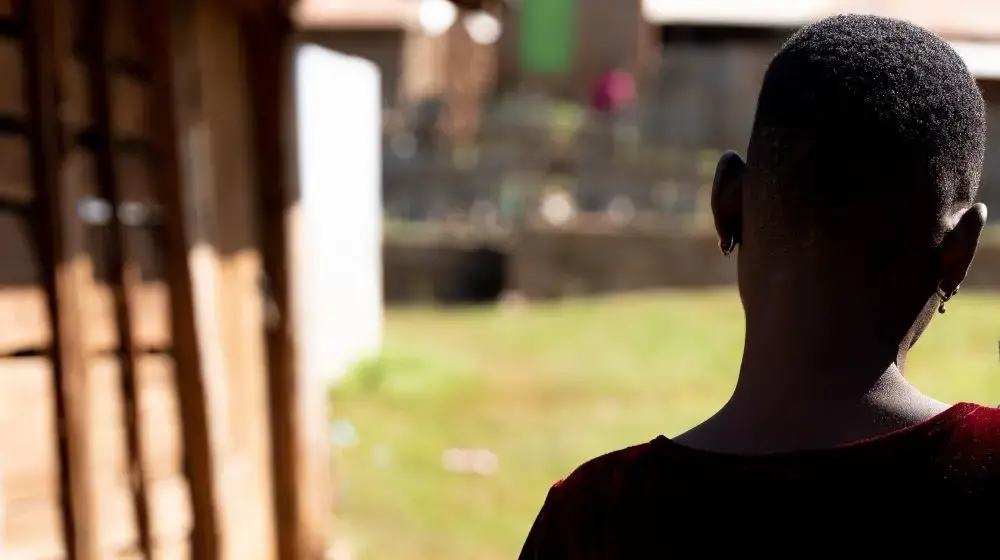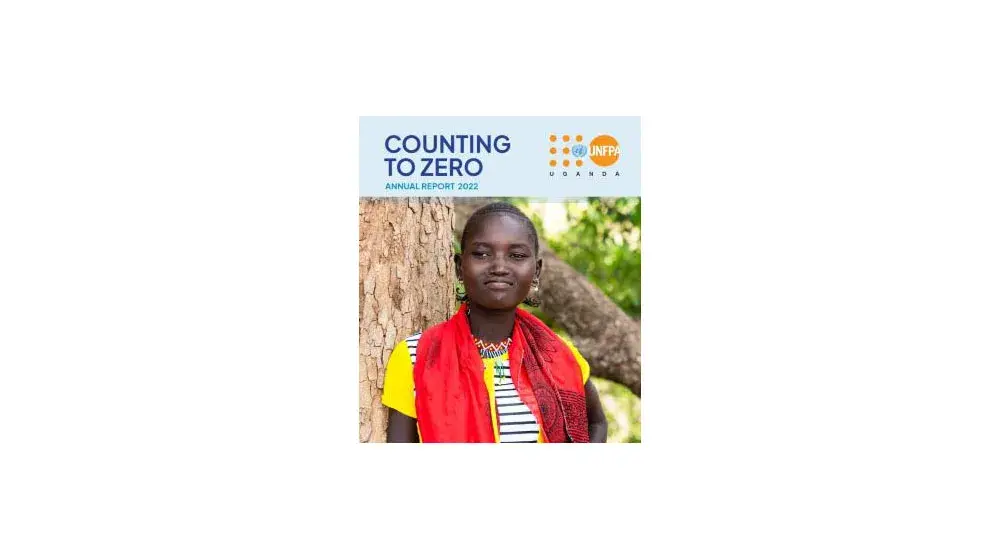Restrictive measures to contain the spread of COVID-19 made it difficult for young people to access sexual and reproductive health and rights services including sexuality education, increasing their risks of experiencing adolescent pregnancy and gender-based violence. Analysis of data from the District Health Information System shows a 17 percent spike in teenage pregnancies in Uganda between the onset of COVID-19 related lockdown in March 2020 and June 2021.
For 16-year-old Rebecca Aciro, the lockdown meant staying at home, in Mission Village, Padibe sub-county, Lamwo district, with lots of free time on her hands. “I would go to dig in the garden in the morning but after that, I would just be at home doing nothing,” she says.
With the disruption of education and health services due to the pandemic, finding innovative ways of supporting young people to make informed decisions regarding sexual relationships, and protect them from sexual abuse and harmful practices such as child marriage was critical to UNFPA.
“The pandemic challenged us to look at our programming through a different lens, to reflect on how to adjust our approaches and ensure that access to reproductive health services for young people is not entirely cut off,” says Dr. Mary Otieno, UNFPA Uganda Representative.
Taking sexuality education out of the classroom into communities
With support from the Embassy of the Kingdom of the Netherlands, UNFPA and implementing partner Save the Children International re-purposed an existing curriculum, based on the Presidential Initiative on AIDS Strategy for Communication to Youth (PIASCY) to deliver sexuality education sessions to young people forced out of school due to the pandemic. In eight districts in Northern Uganda and West Nile, 832 teachers from 216 schools were trained to deliver sexuality education using the PIASCY curriculum.
The trained teachers then mobilised young people within their communities to attend the sexuality education sessions held in various community locations.

Ms. Suzan Nambi Nakabinga, a teacher at Padibe Girls Secondary School in Lamwo district, was one of those trained.
“We were trained for five days to prepare us to conduct sessions for the young people. In a week, I would conduct two sessions, one for 10-14 year- olds and one for 15-19 year olds. We divided them into what we called families; each family had about 50 pupils. I was working with three other teachers from my school who were also trained,” she says.
The lessons were delivered using the PIASCY handbook and covered topics including sexual and reproductive health, HIV and AIDS, prevention of gender-based violence, relationship, life skills, and menstrual hygiene.
Rallying local leaders
To ensure that the sessions were embraced by the community members, UNFPA and Save the Children oriented the district leadership structures from the Local Councils (LCs) to the District chairpersons and Resident District Commissioners (RDCs) to appraise them of the need to support this intervention. Technical officers from the District Health and Education offices were on ground to monitor the teacher training sessions and the sexuality education sessions.
Ms. Esther Aryemo, the Agago District Education Officer, participated in some of the teacher training sessions and the sexuality education sessions thereafter. “The programme is good, I witnessed the training of senior men and women teachers and sessions where young people were engaged in discussions about their health,” she says.
Emerging results
Ms. Nakabinga further observes that one of the biggest changes among the learners was a growth in their confidence to ask questions on various topics as well as the ability to make decisions and stand by them.
“Girls would tell me ‘madam, now we can say no’ to sexual advances. They also reported that they were more careful not to spend so much time at auctions (open markets) where they were exposed to risky situations including consumption of alcohol,” Ms. Nakabinga says.
“I learnt that I can say no to sex, and that if I have a problem, if someone is trying to force me into sex I should report to the senior teacher,” says Rebecca.
Overall 121,839 young people were reached with information during the sessions.
Long way ahead
While the out-of-school sessions have been effective in reaching young people, it is still critical to institutionalise sexuality education, and ensure that young people across Uganda access timely and accurate sexual and reproductive health information and services.
As Ms. Aryemo notes, while the intervention overall was beneficial, not all young people, even within her district were reached.
A number of policies including the National Sexuality Education Framework developed by the Ministry of Education and Sports, the Adolescent Health Policy, and the National School Health Policy are pending approval by the Ugandan Cabinet. Moreover, Uganda is among the countries in the East and Southern African (ESA) region that is yet to endorse the new ESA Commitments on Education, Health, and Wellbeing for Adolescents and Young People (2021 to 2025).
Therefore, the need for the overall policy environment on sexuality education to be made clearer and for policies that are in place to be implemented is more pertinent than ever before, especially now that the COVID-19 pandemic has disrupted health and education systems.
“The COVID-19 pandemic has put a spotlight on the need to protect young people. it has strengthened the case for more investment to secure young people’s sexual and reproductive health rights,” says Dr. Otieno.





